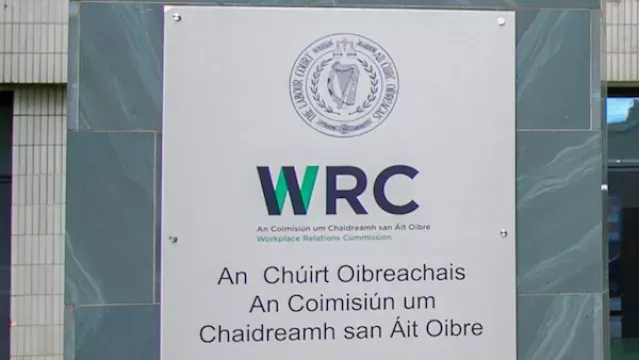New Restrictions
NEW RESTRICTIONS
With the Government likely to make the decision to implement tighter restrictions this evening, there is no doubt some businesses will, regrettably, be faced with closures, once again.
With this in mind, employers may have to make decisions affecting their employees and it is imperative that employers follow fair processes when doing so.
In the first instance, employers are reminded of the importance of issuing protective notice to employees, if they believe there is a potential for further lay-off or short-time working. In this regard, it is noteworthy that the suspension on applying to be made redundant if placed on lay-off or short-time working is still applicable and must be extended again to protect employers from a deluge of redundancy payment claims.
We would recommend that employers send protective notice immediately to all employees, either by general memo or on the internal notice boards.
However, if employers do not have the time to issue this in advance of the restrictions announced, once the details of the new measures are confirmed, all employees should receive formal notification of the lay-off or short-time working measures being implemented, including details of when they are coming into effect.
DO I PLACE EMPLOYEES WHO ARE ON THE EWSS ON LAY-OFF?
For employers who are on the EWSS scheme, employees continue to be employed and are not considered on lay-off even if they are not required to attend work.
Please note that failure to pay an employee their normal wages whilst on the EWSS could be deemed an unlawful deduction in wages unless there has been agreement to reduce their wage or the person has been placed on short-time working under provisions in the employees’ terms of employment or by agreement. For this reason, if an employer is not in a position to pay the employee their full wages during the period of furlough and are only able to pay the subsidy amount to the employee, then it is an option to place the employee on ‘short-time working’ and the employee may apply for the Short-Time Work Support through mywelfare.ie for the days they are not required to work.
DOES THE EWSS ALLOW EMPLOYERS TO PAY AN EMPLOYEE LESS THAN THEIR NORMAL SALARY?
If an employee is required to work, the employee remains entitled to be paid for the hours he/she actually works at their normal rate, regardless of whether the employer is availing of the subsidy or not.
IF A COMPANY CANNOT AFFORD TO PAY THE EMPLOYEE AND THEY DO NOT QUALIFY FOR THE EWSS, WHAT BENEFITS ARE THE EMPLOYEES ENTITLED TO?
They may be entitled to apply for the COVID-19 Pandemic Unemployment Payment and can apply at the following address; https://services.mywelfare.ie/en/topics/covid-19- payments/covid-19-pandemic-unemployment-payment/
To apply for any benefits online, employees will require a myGovID account, which can be set up here; https://bit.ly/2FKD1Ii
They will also be asked to provide personal details and their bank details when applying, as well as identification, their public service card, passport or driving licence and proof of their address-e.g. a utility bill or letter from a government department.
The COVID-19 Pandemic Unemployment Payment is paid in arrears, with the payment week running from Friday to Thursday.
Alternatively, employees who are on short-time working, may be entitled to claim Short-Time work support. Short-Time Work Support is a form of Jobseeker's Benefit and is an income support payment for people who have been temporarily placed on a shorter working week by their employer.
This payment is made in respect of the days of work that have been lost.
To qualify for Short-Time Work Support, you must be:
• temporarily working a standard reduced weekly work pattern
• working 3 days or less per week having previously worked full-time
• be under 66 years of age
• be capable of work and be available for full-time work
• have enough paid or credited social insurance (PRSI) contributions at class A, H, S or P
For further information in relation to lay-off, short-time working or redundancies, please contact MSS for advice.
This update is provided by the MSS HR Support Service.
FURTHER DETAILS ON THE UPDATE OR ABOUT OUR SERVICES MAY BE OBTAINED FROM:
JOHN BARRY/TARA DALY/ HUGH HEGARTY AT TEL: 01 8870690












